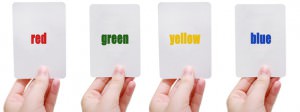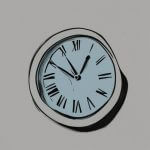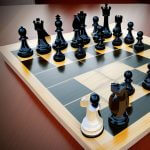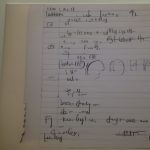12 Practical Academic Uses for Flash Cards
Great study habits are not simply confined to the human brain. There are other outside tools that can help maximize learning potential and get those synapses firing. One such tool is the flash card—something so simple, yet so effective. As long as you stick with these 12 Practical Academic Uses for Flash Cards, you will never have a problem prepping for difficult exams or keeping up with the most important information in a unit.
1. Setting priorities
Flash cards are a quick, easy, visual way of setting priorities—both for the subjects themselves and for the minutia within said content area. By using flash cards to plan your study sessions, you can quickly identify essential versus negligible information. In algebra, for instance, you can create a stack pertaining to fractions, one to quadratic equations, and another to decimals, and simply arrange stacks based on the focus of the information.
2. Quick recall of information
Love it or hate it, many of the most important exams carry with them a time function. It’s not enough to know the information; one must also be able to recall as much of it as he can within a set time framework with as much accuracy as possible. Rather than harp about how unfair this time requirement is on standardized exams, it’s best to embrace the challenge (and the flash card).
By isolating the pertinent information one card at a time you can cut out all the noise and sharpen your focus. This technique will enable the brain to recognize the most essential details of a concept or fact when it turns up on an exam or other crucial situations.
3. Customizing the learning experience
Flash cards are editable—either by hand or computer—and they provide unending support for the learner as he seeks to take charge of his studies and customize the experience in such a way that is interesting, effective and fun. They are not confined to one subject area. Every discipline has use for this tool, and it can be entirely up to the user how each card presents information or tackles a subject.
4. Committing facts to memory
One of the most common uses of the flash card, though far from the only one, is memorization. Flash cards lend themselves to this sometimes tedious but always necessary learning principle. Perhaps one wants to use flash cards to remember dates of important events for a history exam. You can simply write the year on one side and perhaps a helpful illustration. On the other side you can write the event associated with that date. You can then use the cards to test yourself or get together with a group of friends to share in the learning process.
5. Group learning
As alluded to in No. 4, flash cards lend themselves to the group learning environment better than any other study tool. The group can take turns “testing” each other on data vital to an exam. This keeps everyone involved in the action and expedites the learning process.
6. Flying solo
As helpful as group studying is, many students prefer flying solo. No problem there. The flash card can prove just as effective at speeding up response times, cutting out unnecessary details and helping the user internalize the information. “Just as effective” because a student who cannot learn well in big groups will not benefit from the use of the flash card in those settings. However, drop that same student into a quiet room alone and one can expect big results.

Another big draw of this educational tool is that its effectiveness does not have to be confined to words and numbers written or typed onto a 5×7 card. Learners can get creative with how they set up their cards and use tactics, such as color coding details to coordinate with information. In foreign languages—particularly the Romance languages—some words are considered “masculine,” while others are considered “feminine.” An obvious choice would be to code these words on the flash card in blue for masculine and pink for feminine.
Another example: a beginning artist learning the color spectrum may choose to write “ROY G BIV” on the card and write each letter differently in the corresponding color that the letter stands for (R is red, O is orange, Y is yellow, etc).
8. Creative writing
Students are not the only ones who swear by the flash card. Bestselling authors such as Syd Field (“Screenplay”) and James Scott Bell (“Plot & Structure”) recommend using these tools to build scenes, advance the plot and define character. Aspiring writers in a creative writing class will find use of the flash card effective in the linear arrangement of a story and the fleshing out of details which make the story jump off the page.
9. Tackling advanced subjects
Flash cards can make difficult subjects easier. Working with subjects that are so far off what one is used to naturally creates confusion when information starts piling up. The razor-precision focus that flash cards force your brain into keep you from getting overwhelmed when you encounter new and unfamiliar areas.
10. Capturing thoughts on the fly
Inspired moments often come to a person when they are not in position to do anything about them. But if one carries flash cards in a book bag, backpack or back pocket, it’s easy to pull one out and jot down the idea as it comes. Technology is even using the flash card concept of “short-bursting” information and ideas through short-range dictation applications for smart-phones. The free app “Dragon Dictation” is one such example (and there are many others).
11. Deciphering the known from the unknown
As you build understanding for a subject, you can arrange flash cards in stacks of “known” and “unknown” piles to easily determine which info is no longer a concern and which info should receive the lion’s share of his focus.

One of the biggest reasons group studiers prefer flash cards is because they really can break the monotony and make education fun. Trivial Pursuit or Jeopardy games using flash cards that contain info for that next exam can actually turn something boring and dreadful into something exciting and worthwhile.









